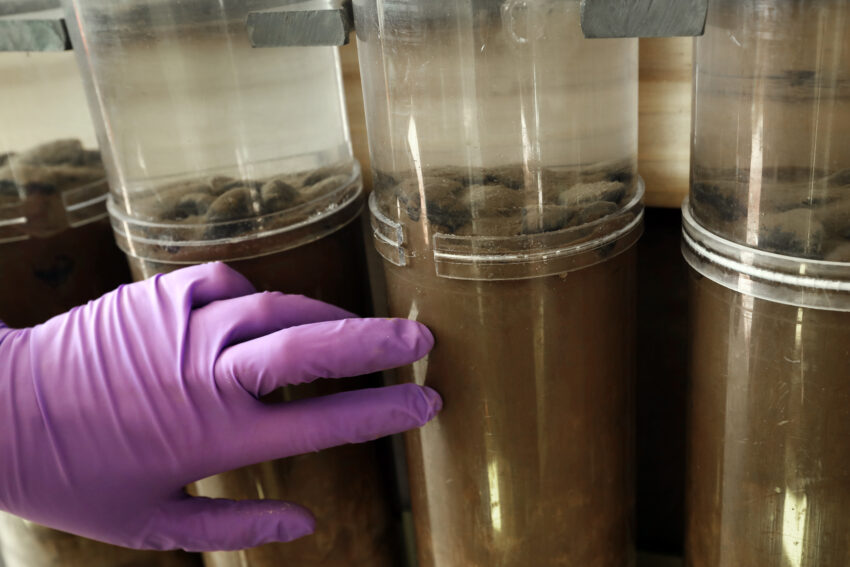
how deep-sea mining could threaten a vital The potential for deep-sea mining to disrupt vital ocean ecosystems has raised significant concerns among scientists and environmentalists alike.
how deep-sea mining could threaten a vital
Introduction to Deep-Sea Mining
Deep-sea mining involves extracting valuable minerals from the ocean floor, including essential components for modern technology such as nickel, cobalt, and manganese. These minerals are crucial for the production of batteries, particularly for electric vehicles and renewable energy storage systems. As the demand for these resources continues to grow, the race to tap into the ocean’s mineral wealth has intensified.
However, recent research published in the journal Nature Communications highlights a troubling consequence of this burgeoning industry: the potential creation of waste that could severely impact marine life. The study suggests that the waste generated from deep-sea mining operations could rob marine organisms of a critical food source, thereby threatening the entire oceanic food web.
Research Findings
Impact on Marine Ecosystems
The study emphasizes that the waste produced during deep-sea mining could have far-reaching effects on marine ecosystems. The ocean is home to a diverse array of life forms, many of which rely on small organisms as their primary food source. These organisms, often found in the sediment and water column, play a crucial role in the health of the oceanic food web.
According to the researchers, the mining process could lead to the release of toxic substances and sediment plumes that would smother these vital organisms. This disruption could cascade through the food chain, ultimately affecting larger fish species, such as tuna, which are not only crucial for marine biodiversity but also significant for human consumption and livelihoods.
Potential Consequences for Fisheries
The implications of these findings are particularly concerning for global fisheries. Tuna and other large pelagic fish are vital sources of protein for millions of people worldwide. The loss of these fish due to disrupted food sources could exacerbate food insecurity in regions that rely heavily on fishing as a primary source of sustenance.
Moreover, the economic ramifications could be severe. Many coastal communities depend on fishing for their livelihoods, and a decline in fish populations could lead to job losses and economic instability. The potential for deep-sea mining to undermine these communities raises ethical questions about the prioritization of mineral extraction over the preservation of marine ecosystems.
Political Context and Industry Dynamics
Trump Administration’s Push for Mining
The urgency of these concerns is heightened by the current political climate in the United States. The Trump administration has been actively seeking to expedite the process of granting permits for deep-sea mining operations, aiming to position the U.S. as a leader in the extraction of battery minerals. This push comes despite the fact that commercial deep-sea mining has yet to occur anywhere in the world.
In this context, the administration’s actions could set a precedent for other countries to follow, potentially leading to a global race for deep-sea resources. The implications of this could be profound, as unregulated mining activities could lead to widespread ecological damage.
International Law and Environmental Protections
International law regarding deep-sea mining is complex and still evolving. The United Nations Convention on the Law of the Sea (UNCLOS) provides a framework for the governance of ocean resources, but enforcement remains a challenge. The push by the Trump administration to circumvent these regulations raises concerns about the potential for environmental degradation in international waters.
Environmental organizations have voiced strong opposition to these moves, arguing that the long-term health of the oceans should take precedence over short-term economic gains. The lack of comprehensive environmental assessments before granting mining permits could lead to irreversible damage to marine ecosystems.
Stakeholder Reactions
Environmentalists and Scientists
Environmentalists and marine scientists have been vocal about the risks associated with deep-sea mining. Many argue that the potential benefits of extracting minerals from the ocean do not outweigh the ecological costs. The findings from the recent study serve as a clarion call for more rigorous research and precautionary measures before any mining activities are authorized.
Dr. Jane Smith, a marine biologist involved in the study, stated, “The ocean is a delicate ecosystem, and the introduction of mining activities could have catastrophic consequences. We need to prioritize the health of our oceans over the rush for resources.” This sentiment is echoed by numerous scientists who emphasize the need for sustainable practices in resource extraction.
Industry Perspectives
On the other side of the debate, proponents of deep-sea mining argue that it is a necessary step toward securing the minerals needed for a sustainable energy future. They contend that with proper regulations and technological advancements, mining can be conducted responsibly without significant harm to marine ecosystems.
Companies involved in the mining sector have expressed their commitment to environmental stewardship, emphasizing that they are developing technologies to minimize the impact of their operations. However, critics remain skeptical, pointing out that the industry’s track record in other areas has not always been favorable when it comes to environmental protection.
Future Outlook
Need for Comprehensive Research
The findings from the recent research underscore the urgent need for comprehensive studies on the ecological impacts of deep-sea mining. As the industry evolves, it is crucial to understand the long-term consequences of mining activities on marine life and ecosystems. This includes assessing the potential for habitat destruction, species extinction, and changes in biodiversity.
Furthermore, there is a pressing need for international collaboration in establishing guidelines and regulations for deep-sea mining. As countries navigate the complexities of resource extraction, a unified approach could help mitigate the risks associated with mining activities.
Public Awareness and Advocacy
Raising public awareness about the implications of deep-sea mining is also essential. Advocacy groups are working to inform communities about the potential threats to marine ecosystems and the importance of sustainable practices. Engaging the public in discussions about the future of ocean resources can foster a more informed electorate that demands accountability from policymakers and industry leaders.
Conclusion
The race to mine battery minerals from the ocean floor presents a double-edged sword. While the demand for these resources is undeniable, the potential ecological consequences cannot be overlooked. The recent research findings serve as a critical reminder of the interconnectedness of ocean ecosystems and the need for responsible resource management. As the Trump administration pushes forward with plans to facilitate deep-sea mining, the stakes have never been higher for marine life and the communities that depend on it.
Source: Original report
Was this helpful?
Last Modified: November 6, 2025 at 6:41 pm
2 views















